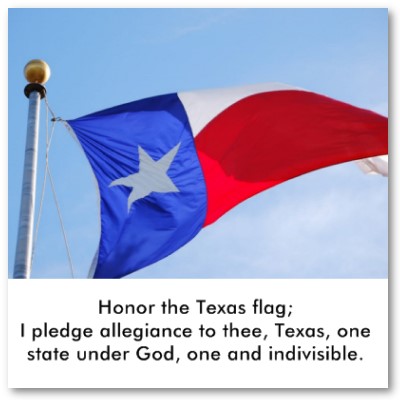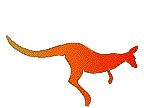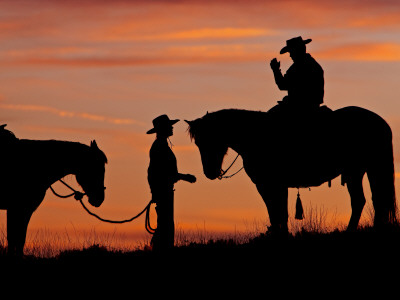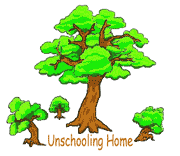

Emily Strength wrote:
"The pop culture of today is the history of tomorrow."I responded:
This is true of music, clothing, food, hairstyles, slang, cars, kitchen design, dishes, shoes, musical instruments (think of pianos or guitars you have known—which were from the 19th century, maybe, or early 20th, or 1970's, or recently made by Yamaha which kicks musical... butt).Any of those topics could lead to very many trails involving technology, international trade, cultural borrowings, religion (why didn't I say "kicks ass" above? It would have disturbed some people, and now it still can; sorry), superstition, money...
The science of today is the "What were they THINKING!?" of tomorrow [as we shake our heads and roll our eyes about scientific fallacies of the past, until they are (many of them, individually, sometimes randomly) shown to have been fact after all].
The proper language and punctuation of today will irritate those not yet born, in 35 years.
Find this river of newness becoming history that's flowing right around and through us all, and learn to ride it openly and happily if you can!

The hardest for me was (is!) letting go of the breadth of academics. For example, kids in school are presented with the breadth of human history from the Sumerians to the modern age. No one who isn't interested remembers it all, but just experiencing it all laid out still seems valuable to me. Unschooled kids get bits and pieces all out of order.Cass Kotrba:But I have to recognize that order and thoroughness are part of my engineering nature. 😉
It's me who enjoys that. It's not necessary for learning. Interest and a rich environment are what's important for learning.
I remember almost nothing about history from school. I learned that I hated history and thought it was boring. As an adult I started watching documentaries about history and realized that history was super interesting. I am still trying to piece it all together. That experience was one of the things that made it easier for me to understand unschooling concepts and generalize to other parts of life.Virginia Warren:
In school, I found reading about history interesting, but I resented having to write page after page of boring essays just to prove I'd read the material.Joyce Kurtak Fetteroll:
Yup. My only academic D was once in history. 😉 When I got to high school I like the *idea* of linear history. I liked the ancient history up through Egypt.Virginia Warren:What I *loved* was historical romances, documentaries, historically set movies. The idea that learning history outside of school was enjoyable and dull inside was one of the seeds planted that eventually led me to homeschooling.
But I had those feelings about everything. I like the linear presentation of science, math, literature. It's neat, orderly and feels thorough. I just wanted a way for it to be *interesting*! 🙂
I learned about a hundred times more about Isaac Newton and the history of science from Neal Stephenson's (fictional) The System of the World series than I learned in all the science, history and math classes I ever took.Keelie Reader:
We never learnt from beginning to end in school - it was much more piecemeal!Katy Bothwell:
I know in my school experience there were great breadths missing, it seemed selected what history we got taught and much was left out. I wish I had been able as a child to explore history from a big picture perspective, being visual, I think I would have enjoyed it more that way, but school years and short class times didn't allow for that big unbiased and untested perspective. A couple of my kids have chosen to participate in this online program and I am enjoying the linear and big history perspective. (note from Sandra: The site moved, and it's only available to teacher-subscribers)Sandra Dodd:
-=-I like the linear presentation of science, math, literature. It's neat, orderly and feels thorough.-=-Cally Brown:They tricked you.
They divide the textbooks up into sections of fairly equal sizes so it can fit a school calendar, so that there are mid-term and semester stopping places. Chapters are what can probably be read in half an hour to 45 minutes. "Answer the questions" at the end of each chapter should take another 45 minutes or an hour. (Some books are set up with OBVIOUS answers sticking out in captions or bold-faced headers, and those can be answered the same day...)
Things that don't merit a whole week or quarter will be stretched out to match something that could be fun for a year or two. Then again, different people are interested in different sciences or periods and places.
Anyway... the linear nature is more about present calendars than about any linear nature of the past. 🙂
And for me, because I did know about how textbooks and curricula are designed, that was the first thing to go, for me—and I knew for certain before I had kids that all of history, art, music and science were connected and were WAY too much for any one person to know half of. So knowing enough to be interested and to start making connections is more valuable than "knowing what school teaches." That changes anyway, even from teacher to teacher within the same school.
What Sandra said, plus... I heard nothing of Australian Aborigines or South American Indian cultures other than Aztecs, Mayans. Our history, in New Zealand, was based around the British Empire and history that impacted upon it - Greek, Roman. Plus a few cute & quirky bits (that's where the Aztecs and Mayans came in) African history was around the Empire / Commonwealth. Maori history was pretty much, 'they were primitives who needed culture'. Nothing of the Pacific nations, little of Asia except where it was of interest to Britain and so us. Nothing even, of Jewish ancient history which had a massive impact on the world - that was left for church lessons which were hardly history! It was linear, yes, but certainly not broad. American history classes would have taught from a slightly different perspective, but I doubt it covered the history of the pacific peoples, except maybe in Hawaii. Every person's learning about the world will be piecemeal - so it might as well be serendipitous and interest based.Sandra Dodd:
-=-so it might as well be serendipitous and interest based.-=-Sarah Dickinson:So it would be BETTER as serendipitous, interest-based connections. 🙂
In schools (for my generation but I think it remains much the same) history goes: Stone Age, Romans (Ancient Egyptians), Vikings, Tudors, Nazis. And that’s the whole of history for you.Sandra Dodd:You might hear mention of Marco Polo or Pearl Harbour and thus get the vague impression that something outside Europe exists, but that would be all.
I once heard a radio interview with a man who had built a fully functioning Phoenician sailing ship and was travelling around the British Isles. He said he could hardly get any schools out to see it because they didn’t ‘do’ the Phoenicians. That stuck with me, not least because I have only the vaguest idea of who, where and when the Phoenicians were myself.
Sarah Dickinson is in the UK. That's a fun list!Ours (U.S.) went (and might still):
I don't know what schools do now for late 20th century. The Vietnam War, maybe; fall of Soviet Union, maybe? Guessing.
- "The fertile crescent," Tigris and Euphrates rivers—Mesopotamia, laws, early Persian culture
- Ancient Egypt
- Greece
- Rome
- Middle Ages
- Renaissance (mostly Italy)
- Age of Exploration (Elizabethan days in UK parlance, but we also care about Spain, Portugal, Dutch trade); we get Sir Walter Raleigh and the Spanish Armada in there.
- Colonization (mostly the Americas)
- American Revolution
- Westward Expansion, Civil War
- WWI
- WWII
AH! The animated maps and timelines were probably flash-based, and are gone from there, but I'm leaving this note for myself to check that link in the Wayback Machine, where flash animation works, again, these days. Check back someday!
History can't be learned "in order," because it's never going to be orderly. It doesn't even happen in order, because often facts aren't discovered until years after incidents occur, and so the history of them unfolds and is clarified and expanded all the time. People knew zip about Pompeii until 1700-and-some years after it was buried. Someday people might know more about Amelia Earhart's disappearance or the assassination of JFK than they do now, after all who knew them personally will have been long dead.
History is an ongoing process of recording and interpretting what happened. The study of the recording of history is called "historiography." That's the history of history, and the philosophy of history.
 The site this linked to is gone. I'm keeping the beautiful jukebox because it was great menu art. |
History can be nearly current, like comparative pop/funk of the '80s— was Prince really all that much greater than Michael Jackson? Was it because he played guitar? What about the history of the guitar? Does Minneapolis create better musicians than Gary, Indiana, or does it even matter? Is Bob Dylan evidence for Minneapolis? One thing leads to another. Thinking about Minneapolis can lead to thoughts of U.S. history, of early 19th century border fortifications, the Mississippi River, the French in Canada, and in Louisiana. You can let your mind float downstream (or up). "Hiawatha" would've been set in that area, and Longfellow wrote that and many other things of childhood, and parents, and night time.
Play with that kind of idea connection. Try to connect or skip over things here and make your own kinds of connections and diversions:
Will any of those thoughts you've just had be on the test?


Memories of baby-boomers, including a TV ad for Slinkies and Fizzies.
Some museums are seasonal or occasional, such as El Rancho de las Golondrinas, south of Santa Fe (the "home" of one of the American Girls dolls). I saw docents doing in-character presentations at Fort Snelling in Minneapolis. They have reenactments sometimes.
Shantytown, in Westland, New Zealand, is a gold rush town museum.
Living history museums aren't perfect history, but can be memorable for kids. If you see the recreations and noticed they might be doing something wrong, that might show you that you know more than you thought you knew! Or if you ask later, it might turn out that they've discovered something to shed light on what you had previously read, heard or figured. They might be right and you were wrong, because knowledge of history changes!
I just read your page regarding living history museums and thought you might enjoy learning about this one, from the town of my birth, Paradise, California. Every year the town celebrates "Gold Nugget Days." They have "Days of Living History" and several other events throughout the year. The museum has lots of hands on "period" activities. The town also has a big to-do for Johnny Appleseed Days - parade, craft booths in the park etc.
Gold Nugget Museum
Community Events—Paradise, California
Thanks for your wonderful site/blog etc!
Jade
Geoffrey Chaucer Hath a Blog, with tons of links to other Middle English, historical, humor and medievalist sites. And they sell t-shirts! Geoffrey Chauceres blog hath fallen in decay, and even paths to shirts and books lead to empty pages of no value. (←2020 note)
Archeology
Bog Mummies, and more bog mummies, with links to other kinds of mummified ancient people, and a Chinese mummy.
Other kinds of mummies and how to make your own at home.
Archaeology for kids (U.K. site)
What prehistoric people ate, and some history of agriculture.
Q&A from Dig Magazine and their illustrated links page
Vikings, from a BBC site with lots of links, photos, interactive pages, and they have similar sections on Egyptians, Greeks , Britons, ancient Romans , and Anglo Saxons . I can't begin to describe how much is there. It ties into everything in the whole wide world. Go look!
There used to be a link here to a game about flags of Texas, but it's gone. Darn it. It built up to something most people don't know exists, though: The pledge of allegiance to the flag of Texas:


Australia—regional history and other categories
Cowboys
Western Memories
Cowboy History (lots of photos)
Chuckwagon Etiquette
and recipes
Cowboys and Legends

Art History
Art History News—
yeah, that's right. News of the world of art history.
Timeline of Art History
History of Photography, which is art but also technology, and came up while I was working on this page because Holly picked up a magazine commemorating Queen Elizabeth's 80th birthday, and it had a photograph of her in every year since she was a baby. Holly saw that most of the photos before the 1950s were in black and white, but the baby picture was in color, and asked whether they had color photography in those days. We considered whether it was tinted, or maybe a four-color separation, but no... Check it out!
Music History
This Day In Music History—
several styles, in case you're a disc-jockey someday;
Music History, as opposed to the History of Music
Western Composers (i.e. classical music)
Country Music (not at all "western" as in classical)
a Passion for Jazz
Rock'n'Roll Timeline
History of Instruments
Some of those are better than others, but whatever has been put online since I made this list is probably better still. Use google! Visit music stores, museums, find outdoor concerts!
History in Songs
Songs with good history tie-ins, sound files and notes.
"It is only in the last twenty years that sport has been appreciated as the stuff of serious history. Sports history grew out of the social history movement of the 1960s that began to look at the past from 'below' by considering the histories of groups, such as women and the working class, that were usually submerged within conventional historical narratives. Although it sometimes struggles for recognition in some of the more traditional echelons of the subject, sports history is now a thriving sub-discipline which produces research that makes important contributions to the social history of Britain and its associated debates and questions." [...and there's more at that page.]History of the Olympics
History of Medicine
Here Today, Here Tomorrow:
Varieties of Medical Ephemera The online version of an Exhibit (many illustrations, social history, mostly last hundred and some years).
Wellcome Trust Library site— the images link is interesting, and "turning the pages" is stunning. You get to look into early medical texts just as they look, and turn the pages.
History of Mathematics
Famous Problems in the History of Mathematics
Wikipedia says...
Timeline, lefthand side of that page, of mathematical and technological beginning with prehistory. Pretty cool.
A reader named Evelyn wrote to say the Timeline link above was broken, and sent this: History of the Computer I found the older link at the internet archive's WayBack machine.50 Years of Information Technology. Though it's a business, page, that timeline is detailed and very interesting!
There's more on the history of computers, nearer the bottom of this page.
History of Childhood
Clothing in the Cornell Costume Collection
Museum of Childhood, Edinburgh. (T)he first museum in the world to specialise in the history of childhood. There are toys and games of all kinds from many parts of the world, ranging from dolls and teddy bears to train sets and tricycles. Listen to the children chanting multiplication tables in the 1930s schoolroom. Watch the street games of Edinburgh children of the 1950s, and find out how children have been brought up, dressed and educated in decades gone by.
 Museum of Childhood, South Kensington, London. The Museum of Childhood is home to one of the world's largest and oldest collections of toys and childhood artefacts. The collection, which dates from the 16th century to the present day includes dolls, teddy bears, toy soldiers, train sets, model cars, puppets, rocking horses, costumes, board games, and some of the first jigsaw puzzles ever made. See some of their toys in motion, with sound. (This is one of the museums that comprises the Victoria and Albert group.)
Museum of Childhood, South Kensington, London. The Museum of Childhood is home to one of the world's largest and oldest collections of toys and childhood artefacts. The collection, which dates from the 16th century to the present day includes dolls, teddy bears, toy soldiers, train sets, model cars, puppets, rocking horses, costumes, board games, and some of the first jigsaw puzzles ever made. See some of their toys in motion, with sound. (This is one of the museums that comprises the Victoria and Albert group.)
Museum of Childhood, Toronto. The Museum's purpose is to inspire a greater understanding of all the joys and nuances of childhood, by generating a culture of sharing, learning, and reflection. Since its inception, we have collected over nine thousand antique and contemporary toys, models, childhood artifacts, vintage clothing, and ephemeral items. The collection is diverse in history and culture with a narrative relating each item.
Museum of Childhood, Wakefield, New Hampshire. The museum features an extensive toy and doll collection from the 1800's. The museum also features a small 1890 school house.
Toys and Games
History of Toys and Games, from The History Channel, with a timeline.
A Brief History of Toys, "Greek & Roman children played with balls, clay rattles, clay dolls, hand carts, hobby horses, hoops and spinning tops..." large Hampshire County museum site with wonderful section on toys and games Childhood Playthings "Toys reflect the society that produced them. By showing us the world in miniature, toys offer us a glimpse into the attitudes, lifestyles and technology of times past." (several nice photos)
Wikipedia, with pictures and links
The History of Toys— inventors and history of many specific commercial toys like Slinkies, Etch-a-Sketch, My Little Pony, skateboards...
Games for Unschoolers, including various historical illustrations, instructions, histories and links
Computers and Video Games
Comments and then a link to a display at the New Mexico Museum of Natural History and Science, on the history of personal computers, and the extensive Albuquerque connection.
Cloud Computing Software and Data Storage History [Thanks to "Megan" who recommended the link after a research session at the library (seems to be a fake library site, which is interesting)]
Computer Storage History: From Magnetic Tape to the Cloud, a timeline (with links to articles) found and recommended by Marissa Pruitt
Timeline of Computer Viruses, 1949-2011
Computers and Video Game History—
Early arcade machines, the history of home consoles, and the history of the video game.
Video games—
it's all history if it was yesterday, where video games are concerned. There is a link there, though, to information on a DVD on the history and development of the games.
Online Displays of the Computer History Museum in Mountain View, California. The online displays include a
timeline, a
history of computer chess,
history of the internet
and
"This Day in [computer] History" (plus several other things)
NOTE FROM SANDRA:
No one could make a website, or a book, or a library or a university with all the history you will come across in your life. Frolic! Delve.
I hope you'll forgive him for misspelling "laser" and "psych," because it's wonderful despite that.
It lasts 19 and a half minutes, but you might feel better knowing that he covers history from before matter existed to 2017. I'm surprised it didn't take 25 minutes.
List of historical films set in Asia
300 Historical Movies in Chronological Order
P.S. Comic relief and oddments: The Evolution of Dance
 History of Calculators—
Timeline, which is just one of the links at this History of Computers site.
History of Calculators—
Timeline, which is just one of the links at this History of Computers site.
That's not all, I just got tired! If you're thinking this doesn't seem like history in school, you're right. Feel free, though, to go to google and look up kings, presidents, dates, wars and political maps and boundaries to your heart's content. Just try not to try to force-feed the info to your children. If you missed all the references to kings, presidents, dates, wars and political maps and boundaries in the links above, you might want to go through some of them again! Catch it in your peripheral vision. Learn it in relation to cooking or automechanics or learning which plants came from other countries when, and why.
Why were airplane plants popular with Victorian ladies and with hippies? And the Victorian ladies couldn't have called them airplane plants, so what did they call them? And why did they have them? And what does NASA think of airplane plants? They're #1 on NASA's list! But wait... that's not just history. It involves geography, home decorating, botany and the space program. Don't stop 'til you get enough.
Catch it in your peripheral vision. Learn it in relation to cooking or automechanics or learning which plants came from other countries when, and why.
Why were airplane plants popular with Victorian ladies and with hippies? And the Victorian ladies couldn't have called them airplane plants, so what did they call them? And why did they have them? And what does NASA think of airplane plants? They're #1 on NASA's list! But wait... that's not just history. It involves geography, home decorating, botany and the space program. Don't stop 'til you get enough.
The video helow is tons of fun, unless "the 'f' word" is a dealbreaker for you. I suppose it's only for families with older kids who have already heard or used that word. There's also an "oh shit," but totally understandable.
List of historical films set in Near Eastern and Western civilization
At imdb, with streaming links (and I hope they're still current when you see this).

David Bowie before he had ever been to the U.S. (to Sandra before "Dodd")